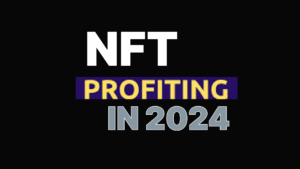Are you ready to embark on a journey towards financial empowerment? Welcome to the world of Financial Literacy 101: Building Wealth and Managing Finances. In this guide, we will delve into the essential aspects of financial literacy, equipping you with the knowledge and tools necessary to navigate the realm of personal finance confidently.
Picture a future where you are in complete control of your money, making informed decisions that propel you towards your financial goals. By mastering the fundamentals of financial literacy, you lay a solid foundation for securing your financial well-being and building wealth effectively.
Let’s uncover the secrets to smart money management, from understanding the principles of budgeting to exploring investment opportunities that can help grow your wealth over time. Financial literacy isn’t just about managing your finances; it’s about empowering yourself to make sound financial choices that resonate with your aspirations.
Join me on this enlightening journey as we demystify the world of finances, unlock strategies for wealth accumulation, and embark on a transformative path towards financial freedom. Together, we will learn, grow, and embrace the power of financial literacy to shape a prosperous future.
Understanding Financial Literacy
Financial literacy is a fundamental aspect of personal finance that equips individuals with the knowledge and skills necessary to make informed financial decisions. It encompasses a range of essential components that are crucial for managing money effectively and building long-term wealth.
Key Components of Financial Literacy
- Budgeting: Budgeting is the cornerstone of financial literacy, involving the creation and maintenance of a spending plan to ensure expenses align with income.
- Saving: Saving money is vital for emergencies, future financial goals, and unexpected expenses, helping individuals build a financial safety net.
- Investing: Understanding how to invest wisely can lead to wealth accumulation over time, with knowledge about asset classes, risk tolerance, and long-term financial planning.
- Debt Management: Handling debt responsibly is a crucial part of financial literacy, including strategies for paying off debt efficiently and avoiding unnecessary borrowing.
- Retirement Planning: Planning for retirement involves setting financial goals, understanding retirement accounts, and saving strategically for the future.
Benefits of Being Financially Literate
- Increased Financial Security: Financially literate individuals are better equipped to navigate financial challenges, protect themselves from unexpected expenses, and build a secure financial future.
- Improved Decision-Making: Knowledge of personal finance empowers individuals to make informed decisions about spending, saving, and investing, leading to better financial outcomes.
- Reduced Stress: Financial literacy helps reduce financial stress by providing individuals with the confidence and skills needed to manage money effectively and plan for the future.
- Long-Term Wealth Accumulation: By understanding financial principles and practices, individuals can work towards long-term wealth accumulation, achieving financial independence and stability.
By enhancing financial literacy, individuals gain the tools and confidence needed to take control of their finances, make informed choices, and secure their financial well-being for the future. Financial education is a powerful tool that empowers individuals to achieve their financial goals and build a prosperous future. Learn more about the importance and benefits of financial literacy to unlock the full potential of personal finance management.
Building Wealth Strategies
In today’s fast-paced world, building wealth is a key aspect of securing a stable financial future and achieving your dreams. Let’s delve into some effective strategies to help you on the path to financial success.
Setting Financial Goals
Setting clear financial goals is the cornerstone of building wealth. By outlining both short-term objectives, like saving for a vacation, and long-term goals, such as retirement planning, you create a roadmap for financial success. These goals act as beacons, guiding your financial decisions and actions towards stability and growth.
Creating a Budget
Creating a personalized budget is a crucial step in managing your finances effectively. Start by tracking your income and expenses to understand your spending patterns. Allocate funds to essentials, savings, and discretionary spending based on your financial goals. By adhering to a well-defined budget, you can monitor your progress, identify areas for improvement, and ensure your money aligns with your aspirations.
Investing Wisely
Investing is a powerhouse strategy for wealth accumulation. Explore various investment options, such as stocks, bonds, real estate, and mutual funds, to diversify your portfolio. Understand risk management principles and leverage the power of compound interest to maximize returns over time. By wisely investing your money and allowing it to grow, you lay a solid foundation for long-term financial security.
For further insights on making smart financial decisions and exploring investment opportunities, check out resources like Bankrate’s strategies for building wealth and Harvard Business Review’s guide to making smart investments. Remember, each step you take towards financial literacy brings you closer to realizing your wealth-building goals.
Effective Financial Management
Financial management is essential for building wealth and securing a stable financial future. By understanding and implementing effective strategies, you can pave the way for financial success. Let’s explore key aspects of financial management that can help you navigate your financial journey successfully.
Debt Management
Managing and reducing debt is a crucial step in achieving financial stability. Techniques such as creating a realistic budget, tracking spending, and prioritizing high-interest debts can aid in debt management. Understanding interest rates and exploring debt consolidation or negotiation options can also help in reducing debt efficiently. By developing a clear plan and sticking to it, you can work towards becoming debt-free and improving your financial health. Check out more Debt Management strategies.
Emergency Savings Fund
Building an emergency savings fund is a fundamental pillar of financial security. This fund acts as a safety net to cover unexpected expenses like medical bills or car repairs, preventing you from falling into debt during emergencies. By consistently setting aside a portion of your income into an emergency fund, you can protect yourself from financial setbacks and unforeseen circumstances. Learn more about the importance of an emergency fund to safeguard your financial well-being.
Credit Score Improvement
Improving your credit score plays a crucial role in unlocking opportunities for financial growth. Maintaining healthy credit habits, such as paying bills on time and keeping credit utilization low, can positively impact your credit score. Strategies like reviewing your credit report regularly, becoming an authorized user on a credit account, and strategically paying off debts can help boost your credit score over time. By leveraging credit effectively and understanding the factors that influence your creditworthiness, you can work towards a stronger financial foundation. Explore more tips for improving your credit score to enhance your financial profile.
Planning for Retirement
Planning for retirement is a crucial aspect of securing a financially stable future. It involves understanding and utilizing various retirement account options, as well as considering estate planning for the distribution of assets after one’s passing.
Retirement Account Options
When planning for retirement, it’s essential to explore different retirement account options available to individuals. Popular choices include 401(k) plans, Individual Retirement Accounts (IRAs), and other investment vehicles.
401(k) Plans: These employer-sponsored retirement plans allow employees to contribute a portion of their salary to a tax-advantaged investment account. Many employers match a percentage of these contributions, making 401(k) plans a valuable tool for retirement savings.
IRAs (Individual Retirement Accounts): IRAs are personal retirement accounts that offer tax advantages for individuals saving for retirement. Traditional IRAs allow tax-deferred growth on investments until withdrawal, while Roth IRAs provide tax-free withdrawals under certain conditions.
Understanding the benefits, contribution limits, and tax implications of each retirement account option can help individuals make informed decisions based on their financial goals and circumstances. Planning early and regularly contributing to these accounts can significantly impact one’s retirement readiness.
For more detailed information on retirement account options, you can explore Types of Retirement Plans by IRS and Best Retirement Plans as per Bankrate.
Estate Planning
Estate planning goes beyond retirement savings and involves preparing for the distribution of assets and wealth after one’s passing. It encompasses creating a will, establishing trusts, and outlining how assets should be managed and allocated among beneficiaries.
Wills: A will is a legal document that dictates how a person’s assets will be distributed upon their death. It allows individuals to specify beneficiaries, designate guardians for minors, and outline any specific wishes regarding their estate.
Trusts: Trusts are legal arrangements that hold assets on behalf of beneficiaries. They can help manage and distribute assets according to the creator’s instructions, potentially offering benefits like avoiding probate and providing ongoing support for loved ones.
Estate planning is vital for ensuring that one’s assets are managed and distributed according to their wishes, minimizing potential conflicts among beneficiaries and easing the transfer of wealth. It’s a proactive step towards securing a legacy and protecting loved ones in the future.
For further insights into estate planning concepts and strategies, you can refer to resources like Estate Planning Checklist by Nerdwallet and Estate Planning Basics by Trust and Will.
Remember, effective retirement planning and comprehensive estate planning are integral parts of a well-rounded financial strategy, contributing to long-term financial security and legacy preservation.
Final Thoughts on Financial Literacy
Understanding the fundamentals of financial literacy is a key ingredient in achieving long-term financial success. It’s not just about knowing the basics; it’s about applying that knowledge to make informed decisions and build a secure financial future. As we wrap up our discussion on financial literacy, let’s reflect on some key points that can empower you to take control of your financial well-being.
Importance of Continuous Learning
Financial literacy is a journey, not a destination. The more you educate yourself about personal finance, the better equipped you are to navigate the complexities of the financial world. Embrace a mindset of continuous learning, whether it’s through online resources, workshops, or seeking advice from financial experts. By staying curious and open to new information, you’ll stay ahead in managing your finances effectively.
Setting Realistic Goals
Setting financial goals is like plotting a roadmap to your dreams. Whether it’s saving for a dream vacation, buying a home, or retiring comfortably, having clear goals provides direction and motivation. Break down your goals into achievable milestones and track your progress along the way. Remember, small steps forward lead to significant financial milestones in the long run.
Building Healthy Financial Habits
Financial literacy is not just about knowledge; it’s about action. Cultivating healthy financial habits, such as budgeting, saving, and investing wisely, forms the foundation of a secure financial future. Develop a budget that aligns with your income and priorities, automate savings contributions, and make informed investment choices. Consistent habits lead to lasting financial security.
Seeking Professional Guidance
Sometimes, navigating complex financial matters can be overwhelming. Don’t hesitate to seek guidance from financial advisors or planners who can provide personalized insights tailored to your unique financial situation. A professional can offer expertise, guidance on investment strategies, and help you make sound financial decisions aligned with your goals.
Empowering Yourself Through Knowledge
Financial literacy empowers you to make informed decisions, protect yourself from financial pitfalls, and seize opportunities for growth. By mastering the basics of personal finance, you gain confidence in managing your money effectively and building wealth over time. Start your financial literacy journey today and unlock the transformative impact it can have on your financial well-being.
Remember, financial literacy is not just about numbers; it’s about taking control of your financial destiny and shaping a prosperous future for yourself. Embrace the learning process, implement sound financial practices, and watch how mastering personal finance can lead to a lifetime of financial well-being and prosperity.
Conclusion
Financial literacy is the key to unlocking a world of opportunities and securing your financial future. By understanding the basics of managing finances, investing wisely, and building wealth, you empower yourself to take control of your money journey. Remember, knowledge is power, and in the realm of finances, it’s the key to success.
Take the time to apply the valuable lessons learned in Financial Literacy 101 to your everyday life. Make informed decisions, set financial goals, and watch your wealth grow steadily. With the right mindset and a commitment to learning, you can navigate the complex world of finance with confidence and skill. Your financial well-being is worth the investment of time and effort. Start today and pave the way for a prosperous future.














